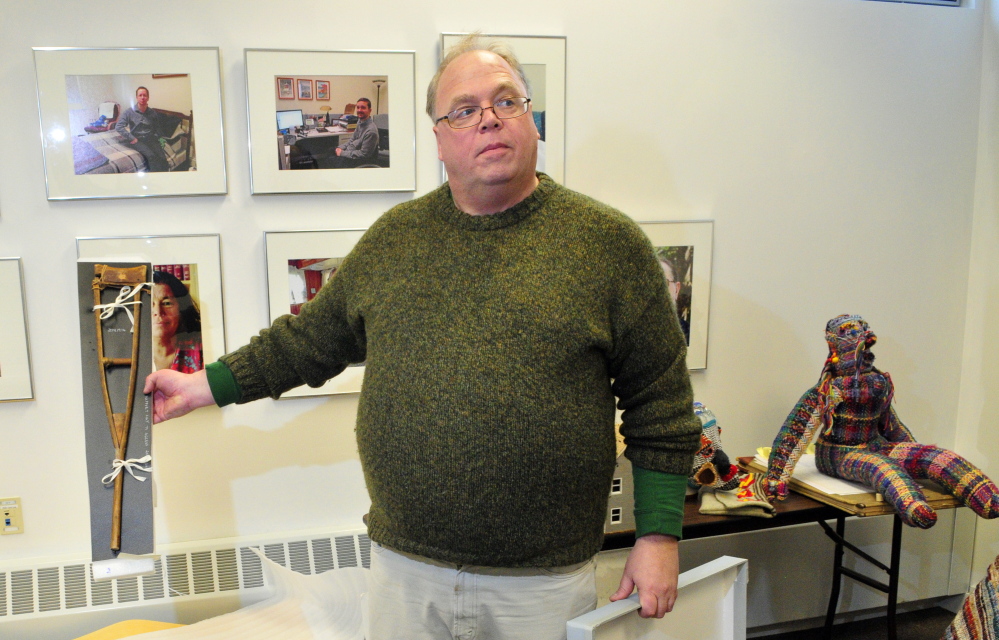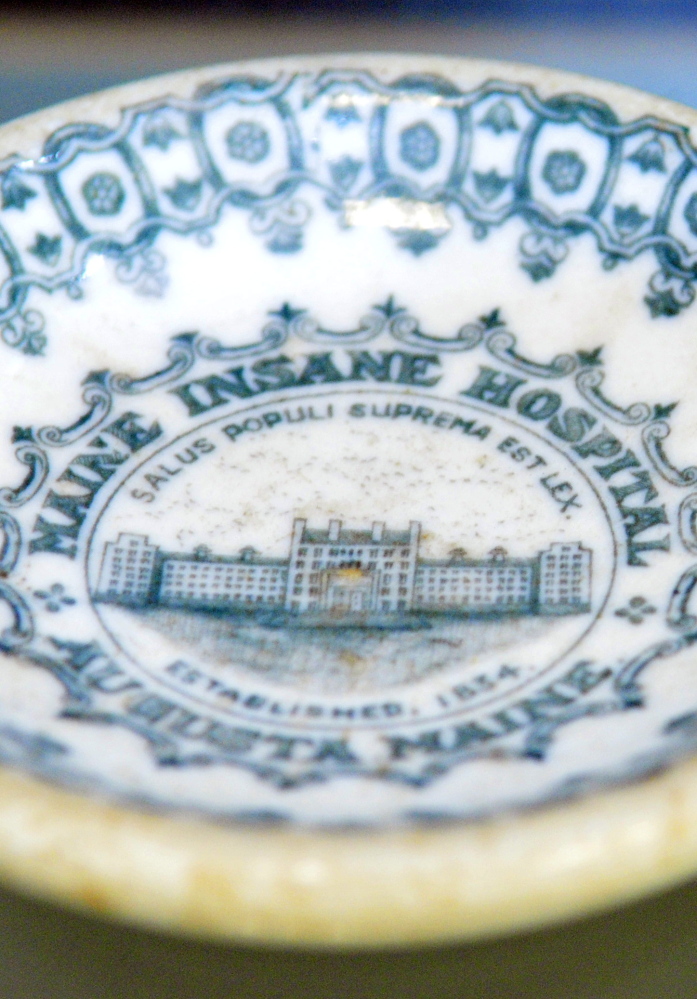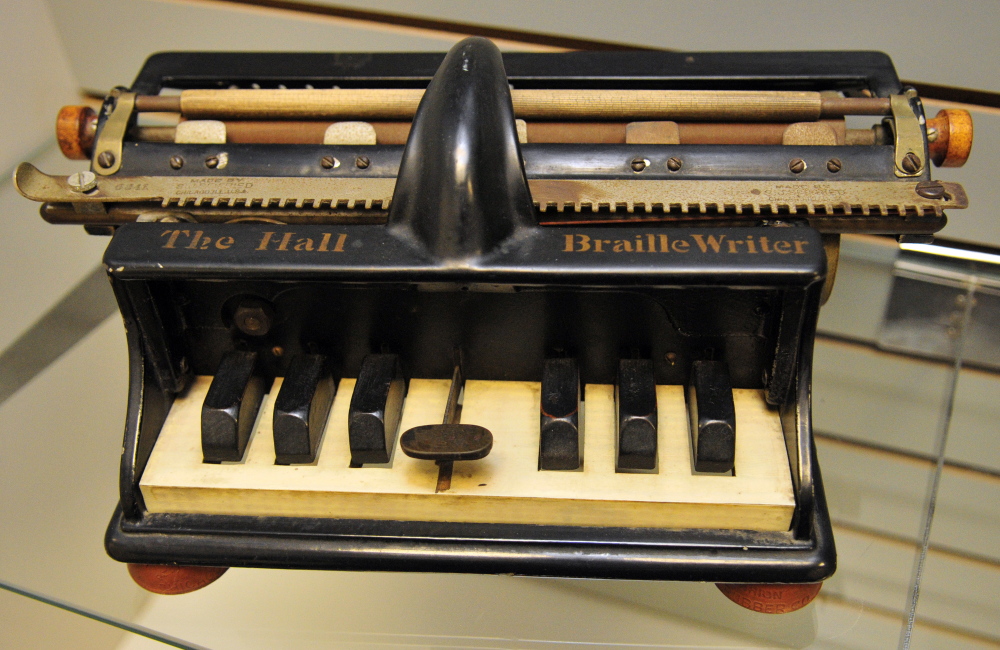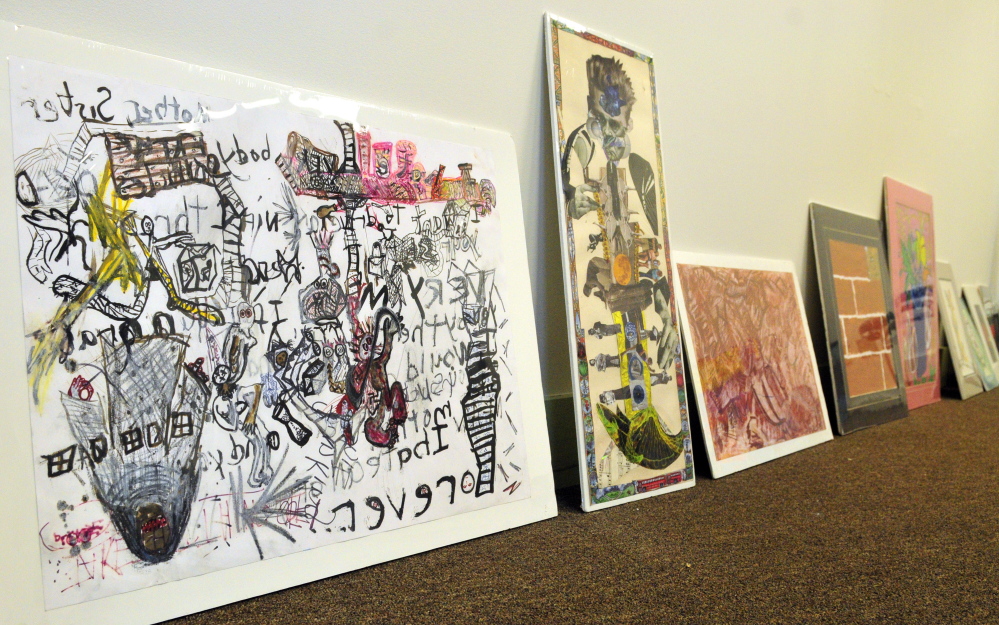The story of the disability rights movement hasn’t been fully told, said Keith Ludden of Augusta, founder of Oral History and Folklore Research Inc.
So that movement was one of the first projects the nonprofit group tackled when it formed in 2013.
“The disability rights movement was by some extent overshadowed by the civil rights movement, the women’s rights movement, things like that,” Ludden said Tuesday.
But the project will get a forum when it’s included in an exhibit celebrating the 25th anniversary of the Americans with Disabilities Act that opens next week at the University of Maine at Augusta’s Holocaust and Human Rights Center.
The two-month exhibit commemorates the landmark act that made it illegal to discriminate against people with disabilities and was signed July 26, 1990, by President George H.W. Bush.
In addition to excerpts from the 10 interviews of people active in or affected by the disability rights movement done by Ludden’s organization, artwork by people with disabilities and historical artifacts related to the disabled will be featured.
An opening celebration will be held from 2-6 p.m. Jan. 15 at the center on the UMA campus, and the exhibit will run through March 15, four months before the 25th anniversary of the act.
The goal of the exhibit is to share some history of how the state addressed disabilities issues over the years and to tell the stories about disabled people, their experiences and the day-to-day effects of the legislation, said David Greenham, program director for the Holocaust and Human Rights Center.
The interviews and portraits of the 10 people with disabilities featured at the exhibit were a project from Oral History and Folklore Research Inc.
Ludden, president of the organization, and the other staffer, Molly Graham, interviewed a dozen people, and the portraits of 10 are featured in the exhibit.
All of the interviews are available for listening on the organization’s website.
Ludden said he’s looking for additional funding to do more interviews and to transcribe all of the interviews so they can be studied by scholars. The project already has received funding from the Maine Humanities Council and the Maine Arts Commission, he said.
“These are the voices of people with disabilities telling their own stories and telling how they view the world and how they perceive themselves in the world,” Ludden said.
He said they heard a number of stories of people facing barriers when trying to attend school and of the isolation and discrimination they faced. Even now, transportation is a big issue for many disabled people, Ludden said.
“It’s a community that just about anyone can join at anytime,” he said. “One can be in an accident. One can become ill. It’s a community that anyone can join.”
The exhibit at the center will also feature artwork and poems created by members of Spindleworks in Brunswick, LINC Wellness & Recovery Center in Augusta, the Waterville Social Club and the Charlotte White Center in Dover-Foxcroft.
The art display is an opportunity to share stories that reveal challenges faced by people with disabilities, Greenham said. One drawing, titled “Why The Birds Cry,” shows crows looking into a house in which a man is abusing someone.
“We don’t have artwork that really expresses that kind of stuff in America that often,” Greenham said.
The historical artifacts, largely from the Maine State Museum, include dinnerware from the former Maine Insane Hospital in Augusta, which was later the Augusta Mental Health Institute and is now Riverview Psychiatric Center, as well as the former Maine School for the Feeble Minded.
There is also a mid-19th century trunk owned by a deaf man who advocated for the rights of deaf people in Maine and an old braille typewriter from the Maine Department of Labor.
Greenham said the center often talks about groups of people who suffered because they were cast as “the other,” such as Jews during the Holocaust and blacks before the civil rights movement in America. “This is a group – people with disabilities – who are so used to being the other,” he said.
Send questions/comments to the editors.






Comments are no longer available on this story